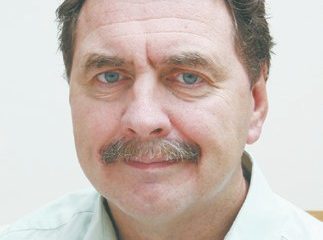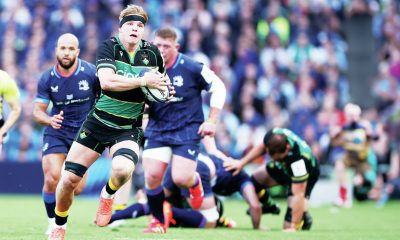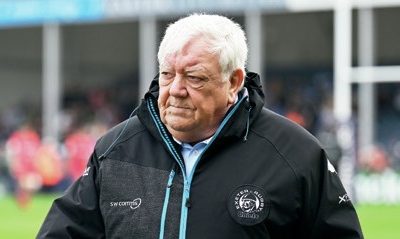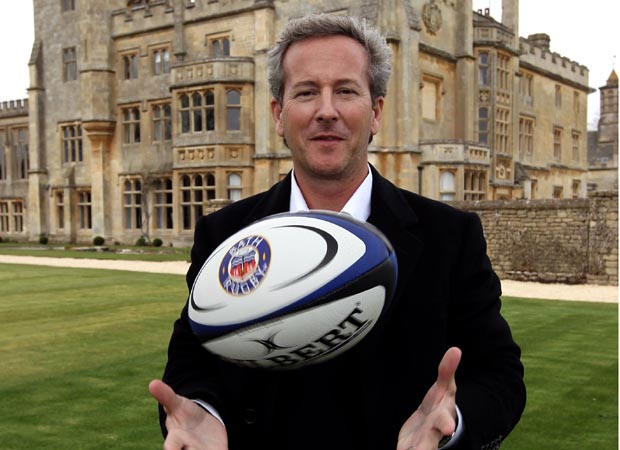 The vultures, in the form of New Zealand, Australian and English talent scouts, are circling the South Pacific skies in growing numbers according to Fiji‘s head coach, Inoke Male, and they are picking off players as young as 14. He argues that this could leave his island nation, and those of Tonga and Samoa, having to live with the consequences of a severe shortage of high calibre players if it is allowed to continue.
The vultures, in the form of New Zealand, Australian and English talent scouts, are circling the South Pacific skies in growing numbers according to Fiji‘s head coach, Inoke Male, and they are picking off players as young as 14. He argues that this could leave his island nation, and those of Tonga and Samoa, having to live with the consequences of a severe shortage of high calibre players if it is allowed to continue.
Male’s side kick-off the autumn series against England at Twickenham a fortnight from now, and he says he is being denied Fijian players because of the ease with which they are being poached by other, richer nations, with the French also getting in on the act.
Racing Metro’s Fijian centre/wing, Virimi Vakatawa, has already declared for France, while England’s inclusion of Mako Vunipola, the Saracens prop who is the son of Fe’ao Vunipola, a former Tonga captain, alongside Manu Tuliagi – whose elder brothers Freddie and Alesana played for Samoa – in their squad for the autumn internationals reflects the growing problem.
“There are several players not available to us for this tour because they want to play for other countries,” Male said. “Young players now want to pursue options for other countries rather than coming on tour which is not a good sign. We have got a lot of problems caused by European countries, especially France and England, who have taken some of our players through their academies when they were young. England and France have got a lot of players to pick from already and, as a small country, for our players to be poached from us is not acceptable.”
Male added that there is a talented 16-year-old Fiji wanted to select who went to an English academy, and has now decided to play for England. He says that the poaching is blatant: “If you go to the secondary school championships you will see scouts from Australia, New Zealand and England trying to find your players who want to go overseas. They are taking our young players like vultures.”
 Male has done the sport a service by speaking out, because the future for Pacific Islands rugby will be bleak unless the IRB – once again, re-active rather than pro-active – get to grips with the hoary old issue of international eligibility. Having said in this column on a number of occasions that the only way to curb the excesses is to start by lengthening the period of residency from the absurdly short three years to six or seven years, others are now waking up to the dangers of international rugby being turned into a ‘flags of convenience’ farce.
Male has done the sport a service by speaking out, because the future for Pacific Islands rugby will be bleak unless the IRB – once again, re-active rather than pro-active – get to grips with the hoary old issue of international eligibility. Having said in this column on a number of occasions that the only way to curb the excesses is to start by lengthening the period of residency from the absurdly short three years to six or seven years, others are now waking up to the dangers of international rugby being turned into a ‘flags of convenience’ farce.
Cricket has already acted, with the England and Wales Cricket Board extending their residency period to seven years, and it is imperative that the IRB moves quickly to do the same rather than carrying out some laborious, drawn out ‘research’ before making a decision somewhere in the distant future.
The debate this time has been triggered not just by Male’s comments, but also by a furore on the other side of the Irish Sea following the selection of Richardt Strauss, the South African born-and bred Leinster hooker, in the Ireland squad for the autumn internationals. Strauss was on the replacements bench for the Cheetahs against the 2009 Lions, and it makes a mockery of the system that the South African could soon be eligible for the 2013 Lions, just like Riki Flutey, who played against the 2005 Lions for Wellington, and for them in 2009. That Strauss, who went to Dublin aged 23, having played all his formative rugby until 2009 in South Africa, is eligible for Ireland just three years after arriving in the country is farcical – as is the fact that he could play against his cousin,
Adriaan Strauss, who is South Africa’s hooker, at the Aviva Stadium on November 10.
The same was true of Flutey when he played for England, and Lesley Vainokolo and Henry Paul before him, both of whom had played Rugby League for New Zealand.
The story with Manu Tuilagi and Mako Vunipola is less clear because they have more than served the current residency period after coming to England as teenagers – and they are rugby migrants who may make their futures here – but in terms of birth nationality and parentage, if not wholly in terms of rugby development, they are Samoan and Tongan.
One suggestion to tighten up the whole system is to have four criteria. They are qualification through: 1. Country of birth. 2. Nationality of parents (not grandparents). 3. If older than 20, seven years residency. 4. If younger than 20, the same seven years residency.
That way national teams will be represented by players who have grown up in a country, and identify with the rugby and social culture that has formed and developed them as people and players.
It is up to the IRB to close the loopholes and ensure that the international game retains its integrity.

1 Comment
You must be logged in to post a comment Login
Leave a Reply
Cancel reply
Leave a Reply
You must be logged in to post a comment.

Latest News
Super Rugby Americas: Round Ten Review

British and Irish Lions
British and Irish Lions: Biggest winners and losers from Andy Farrell’s selection
























Ai Rui Sheng
10 November 2012 at 1:40 AM
That would be very unfair to the Pacific Island teams. e.g. fifteen of the Samoan team and nine of the Tongan team at the 2011 IRB RWC Lottery were born in NZ.